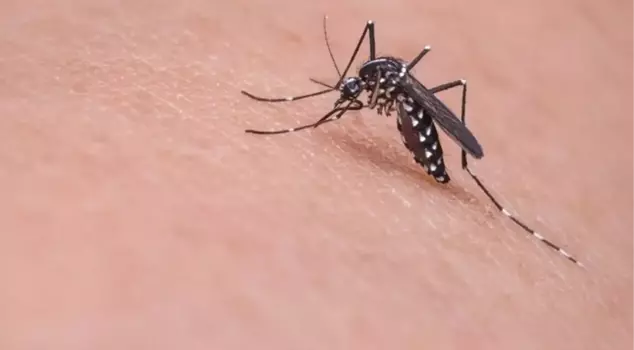
07.08.2024 18:41
Assoc. Prof. Dr. Necla Birgül İyison issued important warnings against the spreading Asian tiger mosquito in Istanbul. İyison stated, "Currently, it is widespread in Istanbul. It is heavily seen in Sarıyer and Beykoz. However, I believe that due to climate change, it is now spreading everywhere. Municipalities can increase their pest control efforts and conduct more spraying in specific areas. Citizens can also be careful not to leave water in their balconies, gardens, or surroundings, and pay attention to water puddles."
Associate Professor Dr. Necla Birgül İyison, a faculty member of the Department of Molecular Biology and Genetics at Boğaziçi University, stated that the Asian tiger mosquito, which is commonly seen in Istanbul and lays its eggs in shallow waters, can cause allergic reactions in people who are bitten by it. She recommended that municipalities increase their pest control efforts and that citizens be careful not to leave water on their balconies and gardens.
İyison, who is conducting studies to develop a long-term and environmentally friendly solution against the Asian tiger mosquito, made evaluations to AA correspondent about the population and characteristics of this species in Turkey.
"AN AGGRESSIVE SPECIES"
Assoc. Prof. Dr. İyison stated that the Asian tiger mosquito can bite through clothing and can carry nematodes, parasites, and viruses, making it effective in the transmission of diseases such as "yellow fever," "dengue fever," "zika," "chikungunya," and "West Nile virus," but no cases of these diseases have been reported in Turkey yet. İyison, who described this species as an "aggressive species" due to its characteristics, stated that she follows scientific studies and new developments regarding the Asian tiger mosquito. She said, "Climate change also facilitates the development of these mosquitoes. As the weather gets warmer, they develop rapidly and lay more eggs. When their numbers increase, they can harm more people."
İyison stated that this mosquito first appeared in Turkey in Thrace in 2011 and in the Black Sea region in 2017, and then spread to Istanbul and other regions, and she emphasized that it is an invasive species that can quickly adapt to the environment and reproduce there.
"SEE A DOCTOR IF SYMPTOMS PERSIST"
Assoc. Prof. Dr. Necla Birgül İyison provided the following information about the effects of the Asian tiger mosquito on people it bites: "It can cause allergic reactions in people who are bitten. First, muscle contractions occur. Then redness occurs in a specific area. How can we alleviate this? We can apply ice to the area where redness occurs. This can prevent the spread of inflammation and itching. Antihistamine creams can also be used. If the symptoms persist, it is necessary to see a doctor. If the mosquito bites the throat area, it can be very dangerous because it causes swelling. In such cases, immediate medical attention is required."
"PREVENT WATER ACCUMULATION OUTSIDE"
Iyison pointed out that this species lays its eggs in water puddles and said the following: "They usually lay their eggs in shallow waters and spread from there. Streams, open water puddles, water channels, barrels, and pools are among the places where these mosquitoes can lay their eggs. The eggs develop over time, and after their development, they lay eggs again. They can multiply within 1 week under suitable conditions. They can lay about 50 eggs at once. Therefore, water accumulations outside should be prevented. An article from a research conducted abroad looked at how common yellow fever and dengue fever caused by these mosquitoes were in a place with and without water accumulations. The article reported that the spread of these diseases decreased by 50-60% when these water accumulations were eliminated."
"SEEN INTENSELY IN SARIYER AND BEYKOZ"
Assoc. Prof. Dr. İyison also made the following evaluations about the current prevalence of this species in Istanbul and what needs to be done: "It is currently widespread in Istanbul. It is seen intensely in Sarıyer and Beykoz. However, I think it is spreading everywhere now due to climate change. Municipalities can increase their pest control efforts and carry out more spraying in certain areas. Citizens can also be careful not to leave water on their balconies, gardens, or surroundings."
"AIMING TO PREVENT THEIR SPREAD"
İyison also mentioned their studies on the Asian tiger mosquito and said, "Using the same pesticide for a long time against mosquitoes causes them to develop resistance to that pesticide. Therefore, we are studying the ways in which mosquitoes develop immunity to pesticides at the molecular level. In this way, we aim to develop an effective method and prevent their further spread."